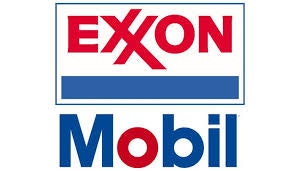A battle is brewing over natural gas exports, which is likely the first of many battlegrounds we must navigate as we continue to move forward without a real energy policy. At stake is the United States’ dream of energy independence. By selling a piece of our future natural gas supply through LNG exportation to the highest bidder, we have the potential to let our dream of energy independence slip away. However, if we mandate that the supply of natural gas stay within our boarders, we restrict oil and gas companies from being participants in a true capitalist market, restricting economic profits and jobs creation.

The case for more exports is clearer than ever, and consistent with basic principles of economics. Trade is good. Exports are good. And if we allow natural gas producers to export natural gas when they find opportunities to do so, American workers and our nation’s economy will be better off.
Understandably, not everyone agrees.
In a classic battle of the titans, Exxon Mobil Corporation (NYSE:XOM) and The Dow Chemical Company (NYSE:DOW) are in a rather public dispute over exports. As the nation’s top natural gas producer, Exxon Mobil Corporation (NYSE:XOM) wouldn’t mind to see the price of gas a little higher, while The Dow Chemical Company (NYSE:DOW) is very content keeping things status quo, as it stands to benefit if the price of natural gas stays low. With exports likely to increase the price of gas, and eat into The Dow Chemical Company (NYSE:DOW)’s profits, it’s chosen to fight against the rising tide to export our excess gas.
The Dow Chemical Company (NYSE:DOW) is not alone in its fight, as other heavy manufactures that currently benefit from low natural gas prices have joined the crusade. The group of manufacturing heavyweights that includes aluminum maker Alcoa Inc (NYSE:AA) and steel manufacturer Nucor Corporation (NYSE:NUE) have joined an organization called America’s Energy Advantage. Together, they make a very compelling argument to keep a lid on gas exports.
For every one manufacturing job we create, five more support and network jobs are added to the economy. Further, for every $1 of final sales of a U.S.-manufactured product, we receive $1.34 in output from other sectors of the economy. Those are just some of the reasons why The Dow Chemical Company (NYSE:DOW) CEO Andrew Liveris has said that, “Rushing to sell natural gas to Europe and Asia risks damage to the U.S. Economy.”
Alcoa’s position is that we take a step back and consider the complete picture. The company:
Favors a balanced approach to energy policy, developing domestic and international markets while avoiding distortions that increase domestic price and/or price volatility. Stable and competitive energy costs help grow employment in industrial jobs, an important contributor to strengthening the middle class and the communities and regions where these employers are located … While Alcoa agrees that there is a role for reasonable exports of LNG in the US gas market, we caution that quickly expanding exports of US LNG to non-Free Trade Agreement (FTA) countries, which represent over 80 percent of global LNG demand, could raise US prices substantially.
The worry here is that exporting our gas would drive up the price of domestic natural gas, thereby stifling growth as this key competitive advantage is eroded The problem is that we can only estimate the effects exports would have on the market and, as you’re probably well aware, few estimates actually prove true. In this case, according to estimates (opens into a PDF) by the Energy Information Administration, the price of natural gas will rise in the future, whether or not we export. However, under a low volume export scenario, prices would increase by a further 14% over the next decade.
While that sounds like a lot, once you consider the overall volatility of natural gas, it makes it hard to put too much weight behind that number. For example, over the past year, natural gas has traded as low as $1.95 per million BTUs, and as high as $3.90 per million BTUs. So, rumors of a cold winter could, in theory, have more of an impact on the price of natural gas than exporting it overseas.



